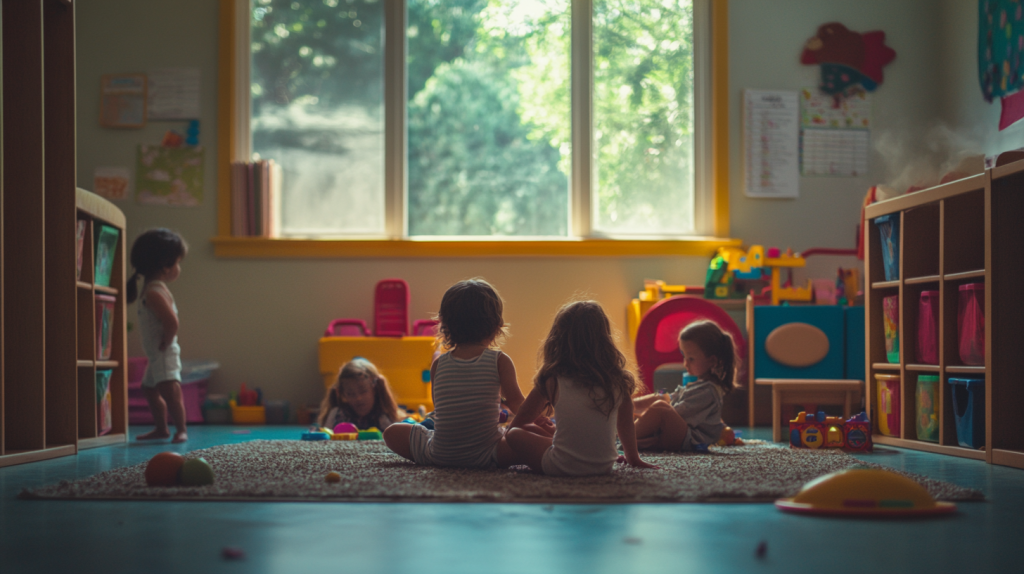Social and emotional development refers to how children learn to interact with others, understand and manage their emotions, and develop self-awareness and empathy. These skills are crucial for forming healthy relationships and succeeding in school and later life.
Defining Social Development
Social development is the process by which children learn to interact effectively with others. It encompasses the ability to form relationships, communicate thoughts and feelings, and work collaboratively in groups. During early childhood, these skills are honed through interactions with family, peers, and caregivers.
Key Emotional Milestones
Emotional development involves understanding and managing feelings, which is fundamental for building self-esteem and resilience. Key milestones include recognizing different emotions, learning to express feelings appropriately, and developing coping strategies to manage emotional challenges.
Importance of Empathy
Empathy, the ability to understand and share the feelings of others, is a cornerstone of emotional development. It enables children to build deeper connections and navigate social complexities. Developing empathy involves recognizing others’ emotional states and responding with compassion and understanding.
Self-Awareness
Self-awareness is the recognition of one’s own emotions, strengths, weaknesses, and values. It fosters personal growth and helps children make informed decisions. Through self-awareness, children learn to set personal goals and understand how their actions affect themselves and others.

How Daycare Supports Social Development
Daycare centers provide an environment where children can practice and enhance their social skills. Let’s look at some specific ways they do this.
Interaction with Peers
In daycare, children are surrounded by peers of similar ages, which provides ample opportunities for social interaction. This constant engagement helps them learn effective communication, sharing, and problem-solving skills. Structured activities like group play and circle time are designed to promote interaction, allowing children to practice cooperation and teamwork.
Learning Social Norms
Daycare settings are structured environments where children learn important social norms and expectations. Through daily routines and rules, children understand concepts like taking turns, sharing resources, and waiting patiently. These norms are critical for functioning within a community and help children learn what behaviors are acceptable in social settings.
Building Friendships
Daycare centers are often the first place where children form friendships outside their family circle. These early friendships are crucial for developing social bonds and emotional connections. Through playing and interacting with friends, children learn important life skills like trust, empathy, and cooperation, which form the foundation for future relationships.
Encouraging Teamwork
Daycare activities often involve group projects and games that require teamwork. These activities help children learn how to work together towards a common goal, understand different roles within a group, and appreciate the value of diverse perspectives. Teamwork fosters a sense of belonging and collective achievement.
Daycare and Emotional Development
Daycare centers also play a significant role in fostering emotional development. Here’s how they contribute.
Emotional Expression
Children in daycare learn to express their emotions in a supportive environment. Caregivers encourage open communication about feelings and provide guidance on managing emotions like anger or sadness. This environment helps children become more comfortable with expressing themselves and understanding their emotions.
Emotional Regulation
Daycare provides opportunities for children to practice emotional regulation, which is essential for personal well-being. Structured activities and routines teach children patience, self-control, and adaptability. These skills help children manage their emotions effectively and respond to challenges with resilience.
Empathy and Understanding
In a daycare setting, children encounter diverse peers and caregivers, which helps them develop empathy. Through interactions with others, children learn to recognize and respond to different emotional states. This exposure fosters a sense of community and understanding, encouraging children to support and help one another.
Building Emotional Resilience
Daycare centers help children build emotional resilience by providing a safe space to explore and express feelings. Caregivers support children through challenging situations, teaching them to navigate setbacks and disappointments. Resilience is a key component of emotional intelligence and contributes to overall mental health.
The Role of Caregivers in Daycare
Caregivers in daycare are instrumental in supporting social and emotional development. Their actions and attitudes significantly impact how children learn these skills.
Positive Role Models
Caregivers serve as role models for children, demonstrating positive social interactions and emotional expression. By observing caregivers handle conflicts and communicate effectively, children learn to emulate these behaviors. This modeling is crucial for teaching children appropriate ways to interact and express themselves.
Providing Support and Guidance
Caregivers offer essential support and guidance as children navigate social and emotional challenges. They assist in conflict resolution, help children understand their emotions, and develop coping strategies. This support builds children’s confidence in their social and emotional abilities, encouraging independence and self-assurance.
Creating a Safe Environment
A safe and nurturing environment is essential for social and emotional growth. Caregivers ensure that daycare centers are places where children feel secure, respected, and valued. This sense of safety enables children to explore their emotions and social interactions freely, promoting growth and learning.
Encouraging Independence
Caregivers also play a role in fostering independence by encouraging children to make choices and solve problems on their own. By providing opportunities for decision-making, caregivers help children develop autonomy and confidence in their abilities.

Daycare Benefits for Parents
While daycare centers benefit children, they also offer advantages for parents.
Peace of Mind
Knowing that their child is in a safe and supportive environment gives parents peace of mind. This assurance allows them to focus on their work or other responsibilities, knowing that their child’s social and emotional needs are being met by qualified caregivers.
Support for Working Parents
Daycare centers provide a practical solution for working parents, offering flexible hours and reliable care. This support makes it easier for parents to balance their professional and personal lives, reducing stress and improving overall family well-being.
Opportunities for Parental Involvement
Many daycare centers encourage parental involvement through events, conferences, and regular communication. This involvement allows parents to stay informed about their child’s progress and development, fostering a strong partnership between caregivers and families. Engaging with the daycare community can enhance a child’s learning experience.
Access to Resources
Daycare centers often provide parents with access to resources and information about child development. Workshops, newsletters, and consultations with experts can help parents support their child’s growth at home, complementing the learning and development happening at daycare.
Choosing the Right Daycare
Selecting the right daycare is crucial for maximizing the benefits of social and emotional development. Here are some factors to consider:
Qualified and Caring Staff
Look for daycare centers with qualified and experienced caregivers who are passionate about child development. Staff should be trained in early childhood education and possess strong interpersonal skills. A caring and knowledgeable staff is essential for creating a positive and nurturing environment.
Safe and Stimulating Environment
Ensure that the daycare provides a safe and stimulating environment with age-appropriate toys and activities. The space should be clean, well-organized, and conducive to learning and exploration. A well-designed environment encourages curiosity and supports various developmental needs.
Emphasis on Social and Emotional Learning
Choose a daycare that prioritizes social and emotional learning in its curriculum. Inquire about the activities and programs designed to support these areas of development. A strong focus on these skills will help your child build a solid foundation for future success.
Communication and Feedback
Effective communication between parents and caregivers is vital for a successful daycare experience. Look for centers that provide regular feedback on your child’s progress and are open to discussions about any concerns or questions you may have. Open lines of communication build trust and ensure a collaborative approach to your child’s development.
Conclusion
Daycare centers are vital in supporting the social and emotional development of children. By providing opportunities for interaction, emotional expression, and learning, they lay the foundation for a child’s future success. For parents, choosing the right daycare means finding a partner in nurturing their child’s growth and development. With the right support, children can thrive socially and emotionally, preparing them for the challenges and opportunities of life.
Contact Discovery Time Learning Center
If you’re looking for a nurturing environment that supports your child’s social and emotional development, consider reaching out to Discovery Time Learning Center. Our dedicated team of caregivers is committed to providing a safe and stimulating space for your child to grow and thrive.
Get in Touch
For more information about our programs, enrollment, or to schedule a visit, please contact us today! We look forward to partnering with you in your child’s development journey.



